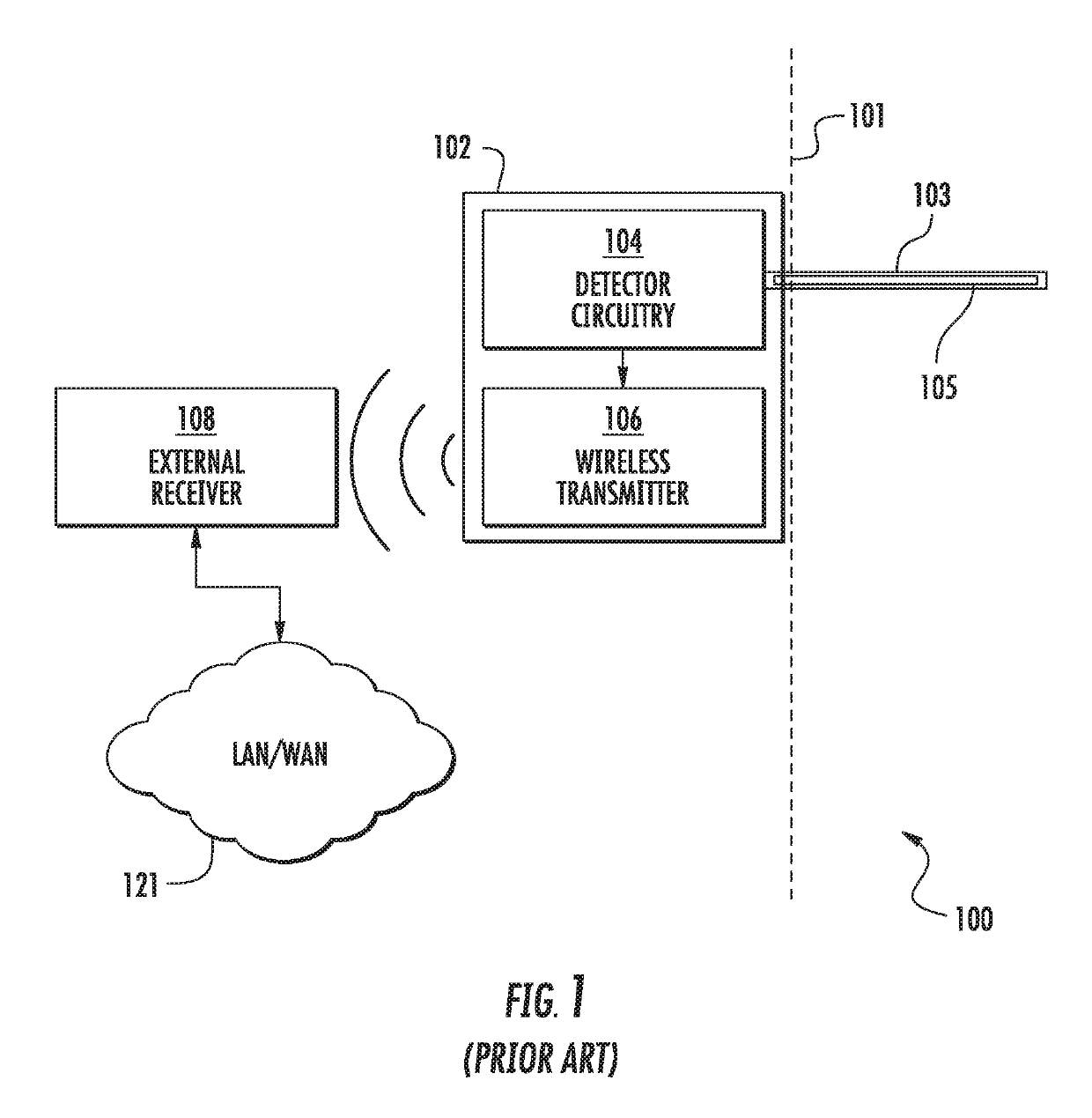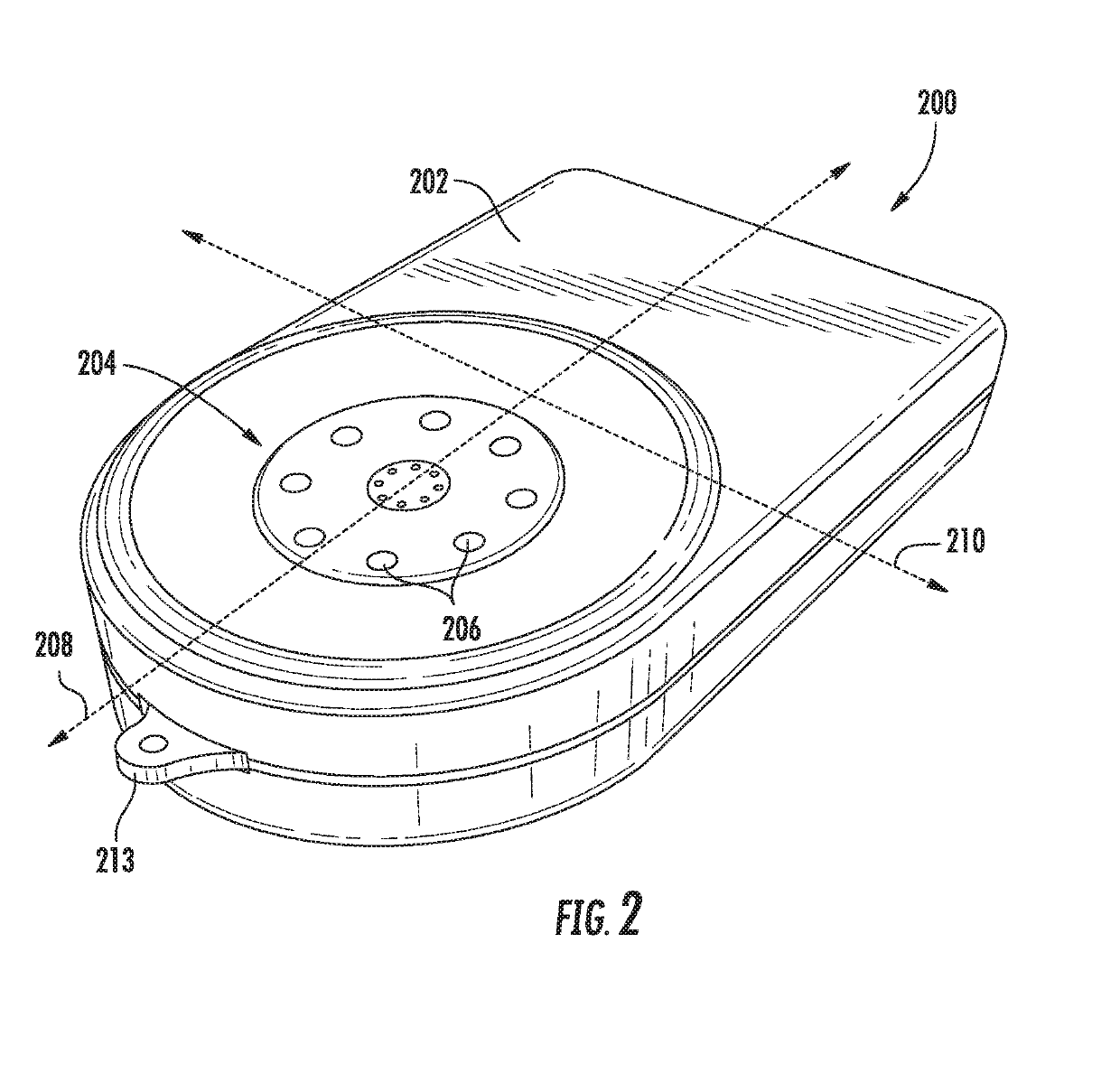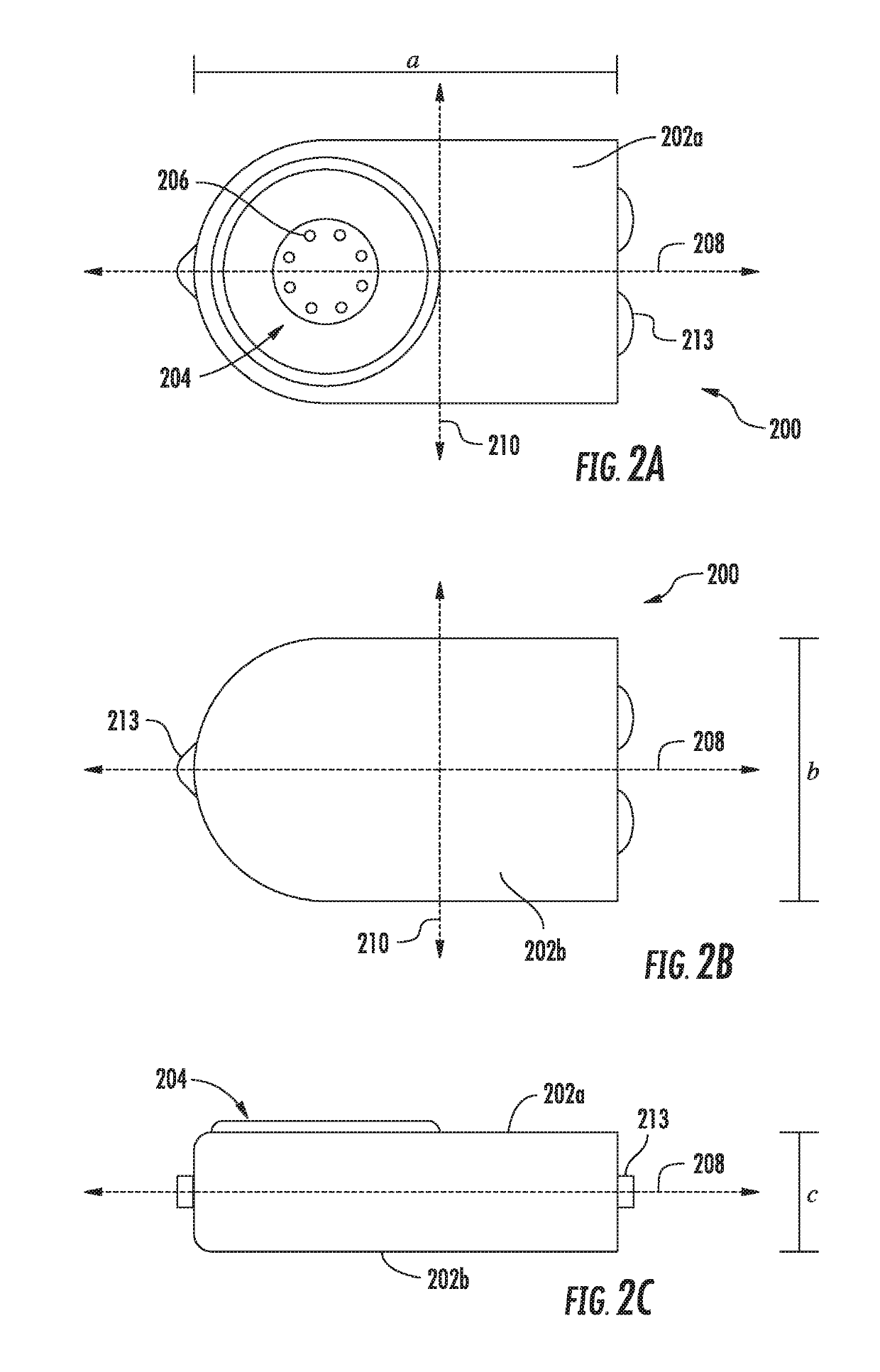Biocompatible implantable sensor apparatus and methods
a sensor and biocompatible technology, applied in the field of biocompatible implantable sensor apparatus and methods, can solve the problems of not being able to realistically expect, preclude warning strategies, and not being able to meet the needs of patients, and achieve the effects of enhancing or enabling the performance of sporting activities, reducing the size of the body, and less functionality
- Summary
- Abstract
- Description
- Claims
- Application Information
AI Technical Summary
Benefits of technology
Problems solved by technology
Method used
Image
Examples
Embodiment Construction
[0083]Reference is now made to the drawings, wherein like numerals refer to like parts throughout.
Overview
[0084]One aspect of the present disclosure leverages Assignee's recognition that many of the above-described disabilities of the prior art “receiver” approach (including the user being effectively tethered to their analyte monitoring system receiver) can be mitigated or even completely eliminated.
[0085]Accordingly, the present disclosure makes use in one exemplary embodiment of a minimal profile (and functionality) receiving device which the user can discretely carry or wear continuously, so as to obviate the bulky and more full-featured receiver(s) of the prior art. In this fashion, the user is largely freed from concerns such as forgetting their receiver / smartphone, having it maintained in a constant state of charge, and notably refraining from activities which would otherwise be impossible or at least highly impractical under the prior art (e.g., watersports including swimmin...
PUM
 Login to View More
Login to View More Abstract
Description
Claims
Application Information
 Login to View More
Login to View More - R&D
- Intellectual Property
- Life Sciences
- Materials
- Tech Scout
- Unparalleled Data Quality
- Higher Quality Content
- 60% Fewer Hallucinations
Browse by: Latest US Patents, China's latest patents, Technical Efficacy Thesaurus, Application Domain, Technology Topic, Popular Technical Reports.
© 2025 PatSnap. All rights reserved.Legal|Privacy policy|Modern Slavery Act Transparency Statement|Sitemap|About US| Contact US: help@patsnap.com



